The World This Week: Keeping a Wise Stance
(Baonghean.vn) - Despite large-scale protests and opposition from the West, a court in Russia has tried Kremlin critic Alexei Navalny. US President Joe Biden and his South Korean counterpart Moon Jae-in had their first phone call, agreeing to cooperate for the common goal of denuclearization and bringing lasting peace to the Korean Peninsula. These are notable international issues of the past week.
Kremlin's tough stance
The arrest of opposition politician Alexei Navalny has long been a source of tension between Russia and the West. Now it has reached a new peak, with a Moscow court agreeing to try him.Mr. NavalnyThe judge imposed a 2-year and 8-month prison sentence in lieu of a 3-year and 6-month suspended sentence imposed on Mr Navalny in 2014 for embezzlement.
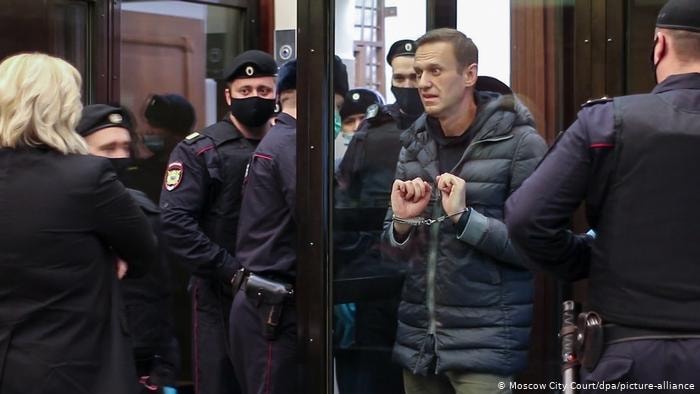 |
| Mr. Navalny is escorted to court. Photo: DW |
In response to the above sentence, US Secretary of State Antony Blinken affirmed that the US is extremely concerned about the Russian government's decision to impose such a sentence on opposition leader Navalny. Mr. Blinken also said that even when cooperating with Russia to promote its interests, the US will coordinate closely with allies and partners to hold Russia accountable for failing to maintain civil rights. Not only that, a group of senators from both the Republican and Democratic parties also proposed a draft to the US Congress on targeted sanctions against Russian officials following this incident.
Western countries such as the EU, UK, France, and Germany have all criticized and called for Mr. Navalny's release. During Navalny's trial, about 20 embassy staff decided to attend the trial, including the US, Austria, Latvia, Poland, Switzerland, Bulgaria... Dozens of journalists also worked inside and outside the building.
For Russia, the trial of opposition politician Navalny is an internal affair of a sovereign state. Therefore, the demands from the West are a“unrealistic” and unreasonable request. Foreign Ministry spokeswoman Maria Zakharova assessed that the US always uses many reasons to impose sanctions against Russia. Therefore, Moscow will carefully consider responding to sanctions imposed by the US and its allies against the country.
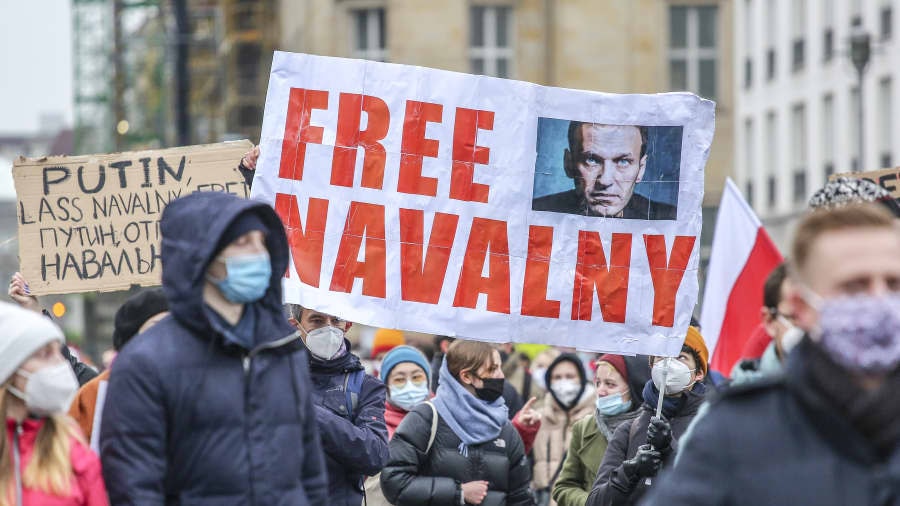 |
| Protesters holding banners demanding Navalny's release in Berlin, Germany. Photo: Getty |
Navalny’s sentencing also shows the toughness of Russia’s leaders. In addition to the government’s pardon, Navalny recently published a detailed investigation into a $1 billion Black Sea palace allegedly built for President Putin. The court’s decision makes Navalny the most famous political prisoner in Russia and could be the most significant verdict yet for Putin’s opponents.
While the scope and extent of the Western backlash against Russia remains unclear, it could have a direct impact on pro-Navalny protests in Russia. Thousands gathered in Moscow following the verdict.
Navalny’s conviction and imprisonment would be “a major blow to an opposition that has lost one of its most effective activists,” said Daragh McDowell, lead Russia analyst at risk analysis firm Verisk Maplecroft. And whether the course of the protests will change remains to be seen. Certainly, Navalny’s imprisonment is likely to trigger at least a short-term increase in street protests, accompanied by clashes and police arrests.
Other experts warn of a potential stalemate between the Kremlin and the opposition. “This domestic turmoil is likely to be prolonged, with heightened social tensions and polarisation,” said Christopher Granville, managing director of EMEA and global political research at TS Lombard.
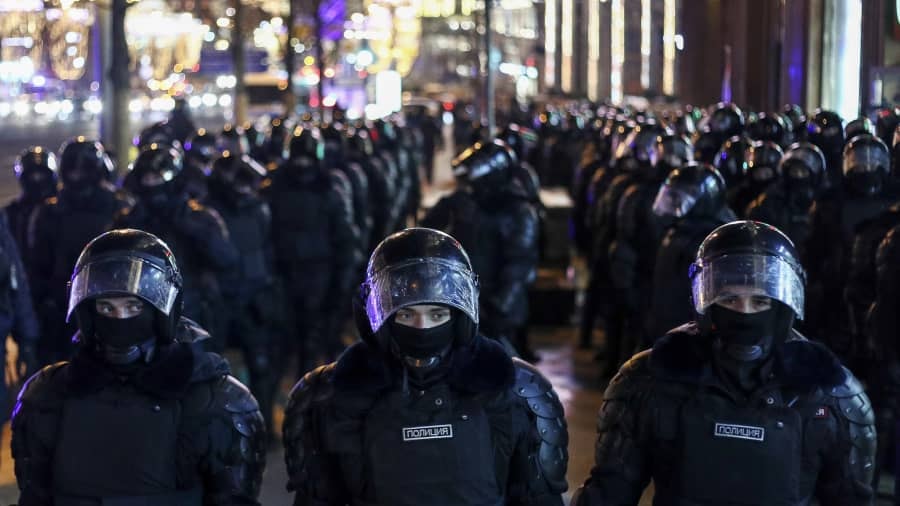 |
| Riot police at protests in support of Alexei Navalny in central Moscow. Photo: Tass |
Building strategies based on lessons learned
During a phone call with President Moon Jae-in,US leader Joe Bidenpledged to cooperate closely to achieve the goal of complete denuclearization of the Korean Peninsula, stressing that it is important for the two allies to stand firm on the issue.
The call comes as President Moon, who has offered to play a mediator role between the United States and North Korea, faces the challenge of getting stalled talks between Washington and Pyongyang back on track.
For the White House, the commitment to strengthening the US-South Korea alliance is the foundation for peace and prosperity in Northeast Asia. President Moon Jae-in, who served as the driving force behind the diplomatic rapprochement between North Korean leader Kim Jong-un and former President Donald Trump, said the Kim-Trump summit collapsed in 2019 when the US rejected North Korea’s call for broad sanctions relief in exchange for limited denuclearization steps.
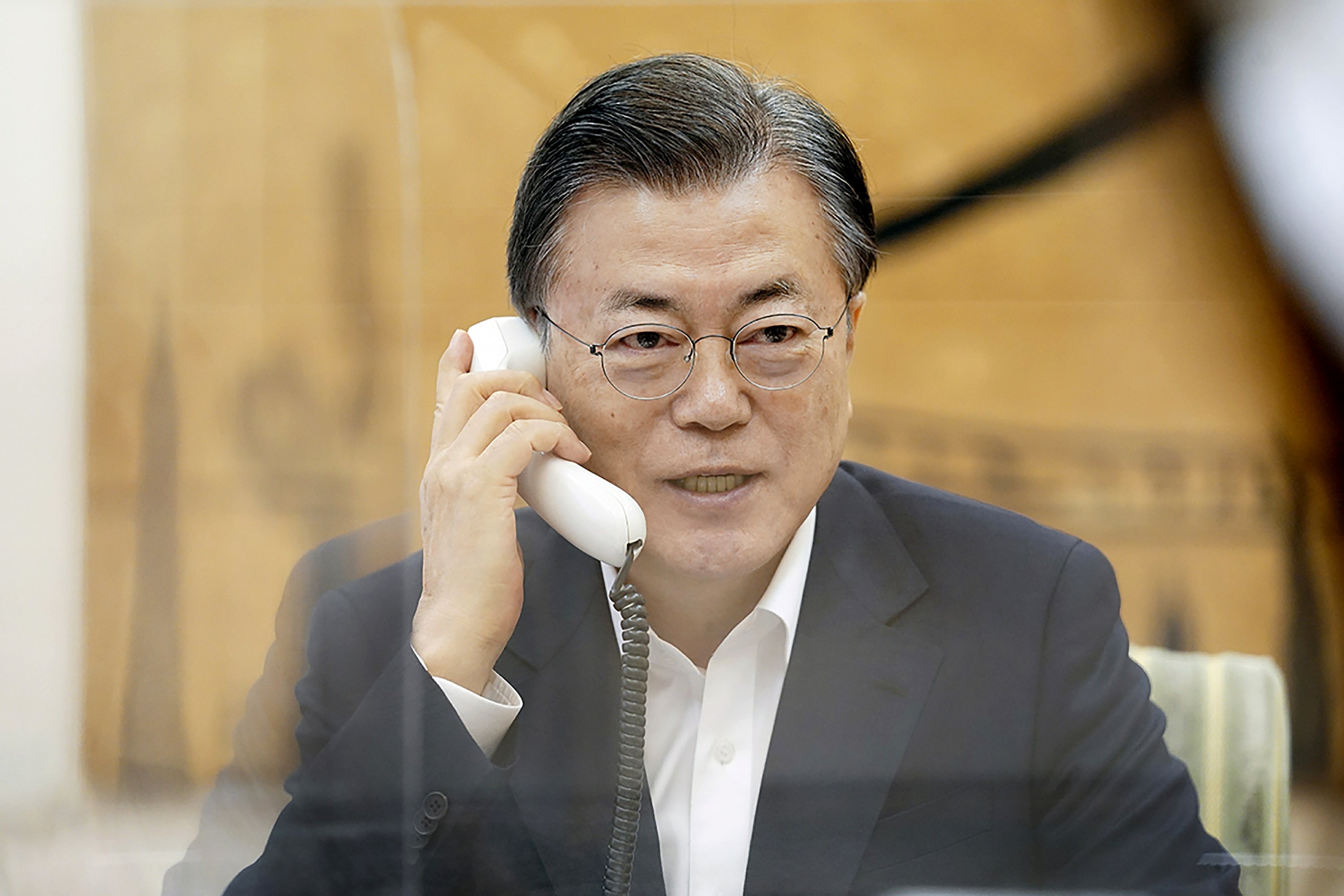 |
| South Korean President Moon Jae-in had a phone call with his US counterpart Joe Biden, agreeing on views on denuclearization on the Korean Peninsula. Photo: AP |
President Moon - who wantsReconnecting nuclear diplomacy, said last month that his counterpart Biden could learn from Trump's successes and failures in dealing with North Korea, although Biden is likely to take a different approach.
The new US president has called the North Korean leader a “thug” and criticized his predecessor, Donald Trump, for seeking summits with Kim Jong-un. Experts say President Biden is unlikely to sit down for one-on-one talks with Kim Jong-un unless North Korea shows sincerity in its efforts to eliminate its nuclear arsenal.
Last month, at the Workers' Party Congress of Korea, Leader Kim Jong-un affirmed that,the fate of US-North Korea relationswill depend on whether Washington abandons its hostile policy toward Pyongyang. At the same time, Mr. Kim has revealed a series of high-tech nuclear weapons systems under development, in an apparent effort to put pressure on the United States.
The US has about 28,500 troops stationed in South Korea, and regularly holds military exercises with South Korea. North Korea sees these military moves, coupled with US-led international sanctions, as evidence of US hostility.
To restore and maintain the momentum of negotiations, South Korea has proposed a partial easing of sanctions against Pyongyang, because this is the most attractive incentive for North Korea above all else. Any dialogue is only effective when it brings what North Korea wants, and that is what ensures that the negotiations do not collapse. And of course, South Korea and the US know what North Korea wants.
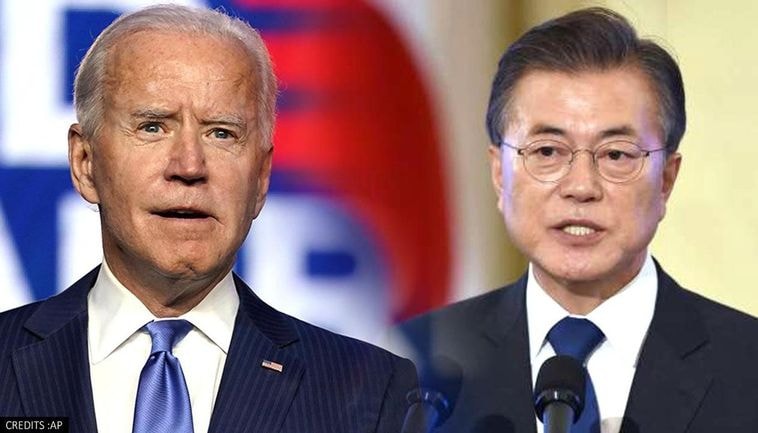 |
| The leaders of the US and South Korea reaffirmed that the seven-decade-old alliance is key to ensuring regional peace and security. Photo: AP |
President Moon, whose term ends in 2022, has made engagement with North Korea a key goal and has been trying to facilitate US-North Korea talks. But South Korea’s role has been ambiguous as it has failed to find any loopholes in sanctions to help North Korea, and offers of economic assistance have been flatly rejected by Pyongyang.
Joseph Yun, the former US special envoy for North Korea, said the Biden team knows that not everything under Trump was a mistake. They acknowledge that Trump opened the door, even if only a little, and achieved some successes in his meetings with Kim. Although the Trump administration did not achieve what it set out to do, and President Biden is unlikely to reuse that strategy, the Biden administration should, however, offer a new diplomatic roadmap that is more realistic, based on the lessons of Trump's tenure.
Experts say creative thinking and joint initiatives are needed to prevent dialogue from reaching a deadlock as before.
